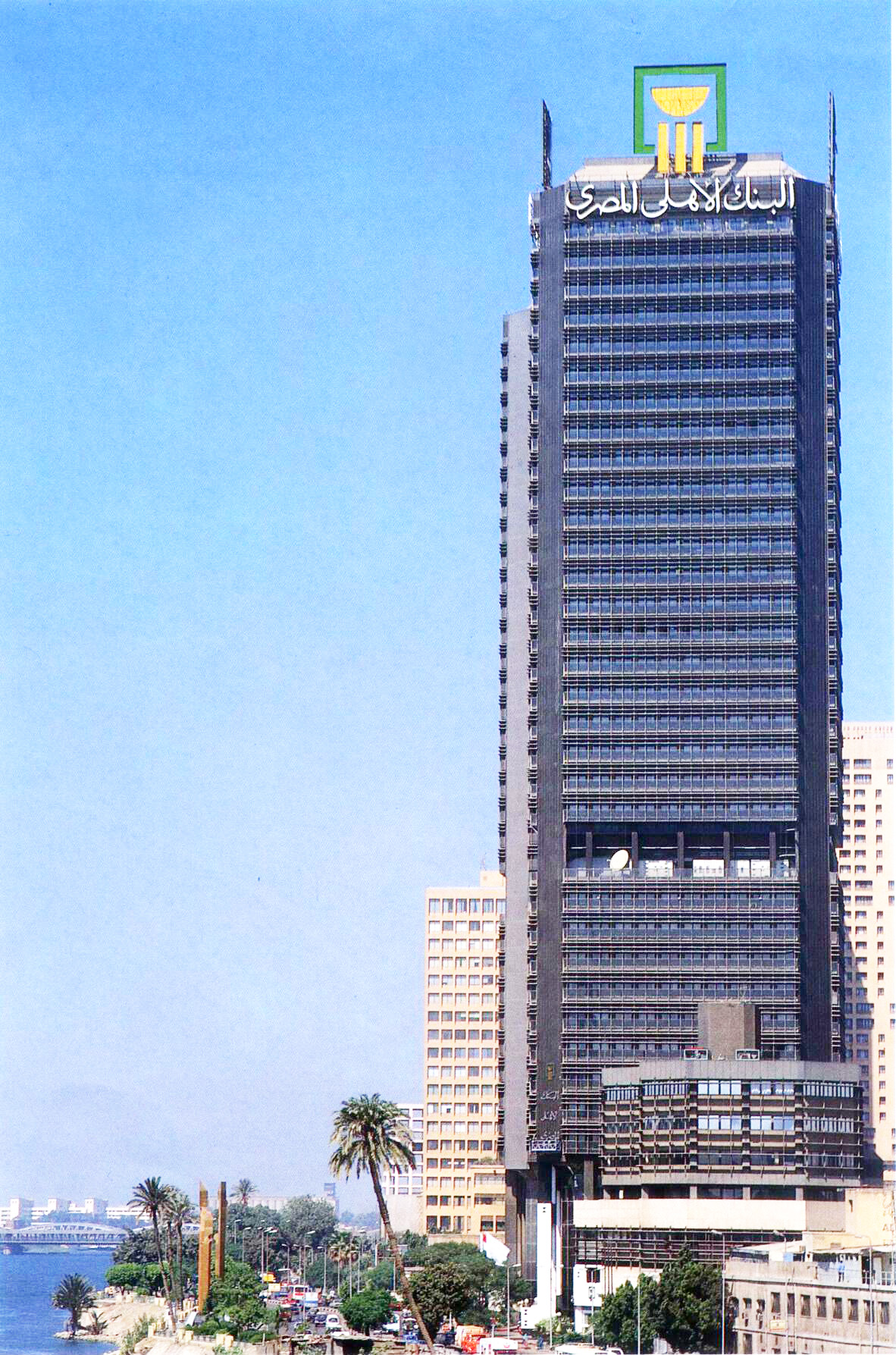Transaction banking is the backbone of the banking industry. It facilities all operations pertaining to withdrawals, deposits, lending, bank organisation, and oversight.
It allows a bank to develop a clear vision as to the financial products it offers and organises, and is the basis of money transfers and online banking services.
From this standpoint, the National Bank of Egypt (NBE) seems to be the most efficient bank in the system.
Mohamed Ehab, president of the transaction banking group of NBE, said that the time has come to move all 15 divisions under transaction banking to three locations.
Thirteen divisions will move to the bank’s main building in New Cairo, while the distribution channels, electronic payments, and payment card divisions will move to a new building in Maadi.
The new building will be the most modern in the Middle East and is in the process of accreditation by Mastercard and Visa. The internal oversight division will be located in Mokattam.
NBE bought the new Cairo Building from the Housing and Development Bank for EGP 370 million.
The building is outfitted with the most modern technology to serve all sectors and administrative functions.
NBE will move into the building during the next four months.
The move will give bank employees an opportunity to benefit from the new technology and gain valuable experience with the aim of developing new leadership skills.
The NBE owns the largest network of automated teller machines (ATM) in Egypt, managing 1200 machines.
The bank has worked to increase the number of ATMs it owns in order to meet the increasing demand of clients, who often do not need to enter a bank to complete simple withdrawal and deposit transactions, and to relieve pressure on the bank’s branches.
Clients used ATMs for 74 million transactions in the last fiscal year, including withdrawals, deposits, currency exchanges, money transfers, and bill payments. The value of the transactions using ATMs was EGP 36 billion.
Deposit transactions via ATM numbered 281,000 with a value of EGP 303 million while currency exchanges numbered 700,000 with a value of $44 million.
Individuals with foreign credit and debit cards withdrew a total of $120 million.
The ATMs made it easier for clients to complete simple transactions without contributing to congestion at the bank’s branches.
Money transfers to individuals from abroad equalled $5 billion, conducted through 3 million transactions.
The bank began to implement a new system called I-Flex and that the system will be complete within the next two years.
The bank seeks to replace the current system which has been in place for the last 40 years.
The bank will implement the new system in 260 branches all over Egypt and train 14,000 employees how to use it.
NBE signed a contract for the new system four years ago for $7 million, but the value of the contract now surpasses $14 million.
Banque Misr, Banque du Caire, Citibank, Barclays, and Crédit Agricole in addition to NBE currently use the I-Flex system.
NBE also plans to build a new archive to preserve the banks documents traditionally and electronically within the next three years.
The bank currently preserves its archives on microfilm but will move to a new system at a cost of $10 million for new technology and employees specialised in electronic archiving.
Ehab noted that NBE is the first bank in Egypt to establish and electronic payments system, adding that a trip to the United Kingdom and Ireland will take place soon in order to support developing the system that is considered a strategic priority.
“We found that the payments system there covers 14 European countries,” he said, “in Egypt, we want to implement the system in NBE branches as an initial step.”
Electronic payments of government salaries declined significantly as an aftermath of the revolution; the bank only activated 200,000 cards out of a total of 600,000.
The bank contracted with 595 government bodies.
NBE plans to offer new financial products at low interest rates in order to encourage government employees to use its services.
He noted that the electronic payment system is implemented with the co-operation of the Ministry of Finance using the company E-Finance.
The system helps to reduce the risk of money transfers and allows the Ministry of Finance to make payments quickly and easily.
In addition, NBE recently implemented an electronic payment system for university payments, starting with the Cairo University, and plans to implement the system in the future for all public and private universities in addition to Egyptian port authorities.
NBE is in the processes of building a check-printing centre in the Smart Village Egypt.
The checks will be printed in line with Central Bank and international standards in order to prevent counterfeit and fraud.
The bank will also implement a system for transaction banking over mobile phones in the coming period.
NBE transaction banking services are organized under 15 divisions that include distribution channels, electronic payments, payment cards, money transfers, auditing, and securities in addition to loans and assets.
There are also divisions for deposits, liabilities, and system management, clearing, correspondent accounts, and operations support.
Ehab stressed the presence of the Internal Controls division to supervise all divisions and branches.
The division ensures that all divisions and branches comply with the bank’s regulations.
He also said that the bank had solved all the problems associated with the “yellow transfers,” or compensation for Egyptians who lost assets during the first Gulf War.
The bank paid out EGP 500 million in 145,000 transactions that were transferred to the bank by the Rafidain Bank in Iraq.
The bank is currently considering the method to pay individuals who do not possess proper documentation of their assets, as well as looking into paying the compensation to the heirs of asset owners in co-operation with Egyptian security and the Rafidain Bank.



